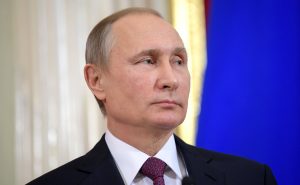 Twenty-three Russian diplomats have been expelled from the U.K. after Russia was accused of using a nerve agent to poison one of its former spies on British soil. The press described the expulsions as the biggest one of Russian diplomats in more than 30 years. After the murder of Alexander Litvinenko in 2007, four diplomats were expelled from the country.
Twenty-three Russian diplomats have been expelled from the U.K. after Russia was accused of using a nerve agent to poison one of its former spies on British soil. The press described the expulsions as the biggest one of Russian diplomats in more than 30 years. After the murder of Alexander Litvinenko in 2007, four diplomats were expelled from the country.
Sergei V. Skripal, 66, and his daughter, Yulia S. Skripal, 33, were sickened on March 4 with a nerve agent in Salisbury, the small city where Mr. Skripal lives. They both remain hospitalized in critical condition. Investigators have linked the nerve agent used to an extremely potent class of chemical weapons developed by the Soviet Union in the 1970s and ’80s. The agent is believed to be 10 times more powerful than other weaponized nerve agents, such as VX.
Skripal was imprisoned for selling secrets to Britain, and then sent to Britain in 2010 in a spy swap. Russian President Vladimir V. Putin was head of Russia’s spy agency, the FSB, during the time that Skripal allegedly supplied information to Britain.
Hundreds of bystanders were potentially endangered by the attack. May said, “We will not tolerate the threat to life of British people and others on British soil from the Russian government. Nor will we tolerate such a flagrant breach of Russia’s international obligations.” May has called off high-level contacts between the two governments. An invitation for the Russian foreign minister, Sergey Lavrov, to visit the country has been withdrawn.
Britain’s ambassador to the United Nations, Jonathan Allen, blamed Russia for the attack during an emergency session of the United Nations Security Council. The American ambassador, Nikki R. Haley, called the poisoning “an atrocious crime.” E.U. leaders are planning discuss the incident at a summit next week
Vassily Nebenzia, the Russian envoy to the UN, alleged that the Salisbury poisoning was a false-flag attack, possibly by the U.K. itself. Russia’s ambassador to the U.K., Alexander Yakovenko, said that what the U.K. government was doing was “absolutely unacceptable”. The Kremlin has vowed to retaliate for any measure Britain takes against it.
